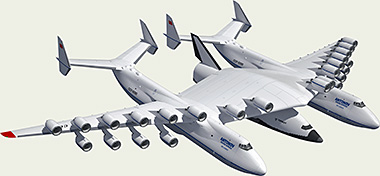I don't know about there no purpose flying around the moon.I want something bsides LEO laps myself--and the rad threat has been overhyped.
There was no market for any LVs before an oversized ICBM called R-7 began the space race--and R-7 was the SLS of its day. A rocket no one "wanted" (except engineers who built it) that was "too big."
Well we saw what happened after that. Depots are going to be tricky. This is why I support HLLVs. My hope was that CZ-9 would launch from China, and that a Russian HLLV would also come along.
Now let's say that all three nations only launched a single 100 ton to LEO vehicle every year. But if they launch all on the same day, and use block II SLS equivalents--that's 300-450 tons to LEO in one day!
A couple of connections, and you are off to Mars with minimum boil-off. If each nation launches two within a few days of each other--all the better.
Do only 20 tons at a time, and you are going to hemorrhage LH2. Remember LDEF? That is proof that things do wear in space. The longer a depot stays in orbit, the more likely things can wear out. Lubrican'ts are tough to come by in a vacuum.
The reason I like HLLVs--however much they cost and whatever the flaws--is that they allow large shrouds, and high volumes. By linking three 100 ton fuel fat mega-modules as quickly as possible, you can stage all that wet mass off as thrust and exchange fuel--which can leak--for momentum (inertia) which can't leak.
Now there is a movemonet away from storable fuels, like hypergolics, following the satellite shootdown, and I don't think they would allow Musk to amass hundreds of tons of hypergols. If that depot were to get holed and start spewing--you have a big hazard, and there would be no way to keep it from spinning.
What HLLVs allow is a more starightforward mission, with less of a Rube Goldberg element. That is why aerospace experts favor them--and Congress actually listened. But the one time that Congress actually did the right thing engineering wise, now they get bashed--for supporting SLS. The type to bash Congress for interfering in space was over VentureStar's support. Talk about a costly boondoggle!
When I moved, I used as big a U-haul as I could drive. I didn't try five hundred trips with a radio flyer--ever if it would have been "cheaper."
There was no market for any LVs before an oversized ICBM called R-7 began the space race--and R-7 was the SLS of its day. A rocket no one "wanted" (except engineers who built it) that was "too big."
Well we saw what happened after that. Depots are going to be tricky. This is why I support HLLVs. My hope was that CZ-9 would launch from China, and that a Russian HLLV would also come along.
Now let's say that all three nations only launched a single 100 ton to LEO vehicle every year. But if they launch all on the same day, and use block II SLS equivalents--that's 300-450 tons to LEO in one day!
A couple of connections, and you are off to Mars with minimum boil-off. If each nation launches two within a few days of each other--all the better.
Do only 20 tons at a time, and you are going to hemorrhage LH2. Remember LDEF? That is proof that things do wear in space. The longer a depot stays in orbit, the more likely things can wear out. Lubrican'ts are tough to come by in a vacuum.
The reason I like HLLVs--however much they cost and whatever the flaws--is that they allow large shrouds, and high volumes. By linking three 100 ton fuel fat mega-modules as quickly as possible, you can stage all that wet mass off as thrust and exchange fuel--which can leak--for momentum (inertia) which can't leak.
Now there is a movemonet away from storable fuels, like hypergolics, following the satellite shootdown, and I don't think they would allow Musk to amass hundreds of tons of hypergols. If that depot were to get holed and start spewing--you have a big hazard, and there would be no way to keep it from spinning.
What HLLVs allow is a more starightforward mission, with less of a Rube Goldberg element. That is why aerospace experts favor them--and Congress actually listened. But the one time that Congress actually did the right thing engineering wise, now they get bashed--for supporting SLS. The type to bash Congress for interfering in space was over VentureStar's support. Talk about a costly boondoggle!
When I moved, I used as big a U-haul as I could drive. I didn't try five hundred trips with a radio flyer--ever if it would have been "cheaper."


